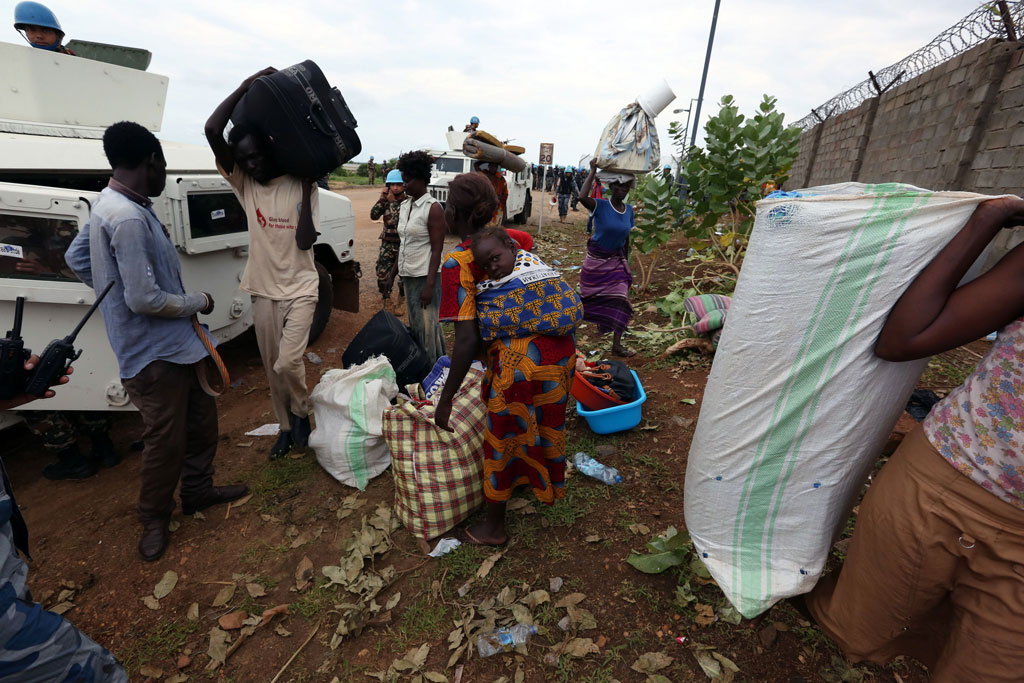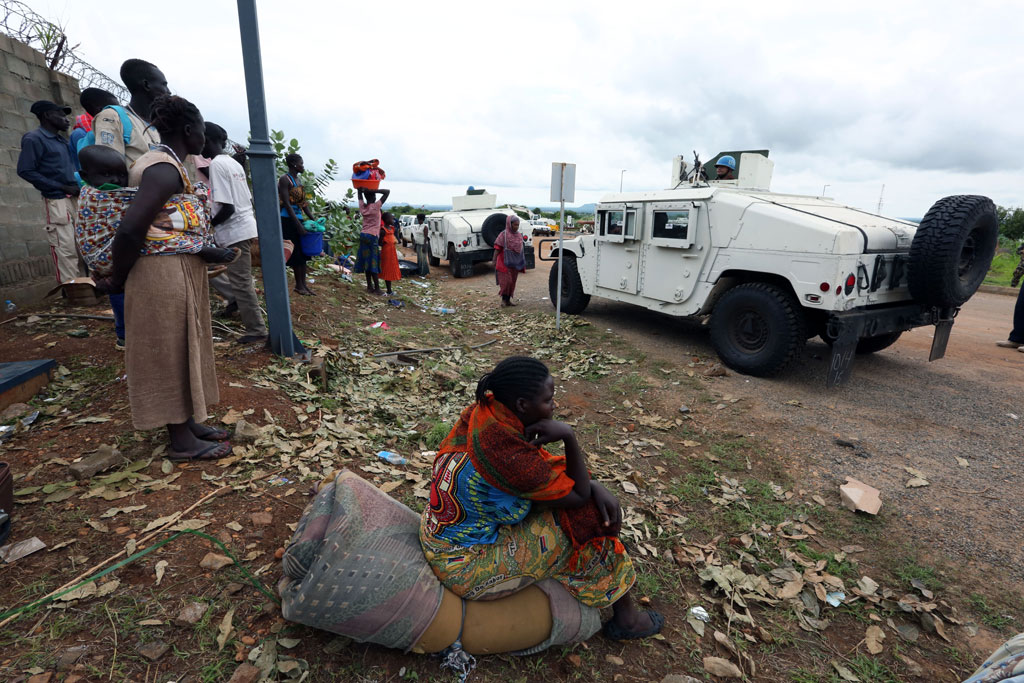
According to a statement from Mr. Ban’s spokesperson, the UN chief received the report (summarized here) of the Independent Special Investigation, and is “deeply distressed” by its findings, including that UNMISS did not respond effectively to the violence, which erupted in early July, due to an overall lack of leadership, preparedness and integration among the various components of the mission.
Commenting on the report at the daily press briefing at UN Headquarters, Spokesperson Stephane Dujarric announced that in line with the report’s recommendations, the Secretary-General has asked for the “immediate replacement” of UNMISS Force Commander, Lt. Gen. Johnson Mogoa Kimani Ondieki.
The incidents occurred during a spate of clashes between rival forces – the Sudan People’s Liberation Army (SPLA) loyal to President Salva Kiir and the SPLA in Opposition backing First Vice-President Riek Machar – that broke out in and around Juba, on 7 July, close to the fifth anniversary of the country’s independence.
UN compounds and UNMISS-managed civilian protection sites were attacked during the fighting and, according to the UN High Commissioner for Human Rights, Zeid Ra’ad Al Hussein, a separate preliminary UN investigation into the violence and its aftermath revealed that Government security forces carried out killings and rapes, and looted and destroyed properties.

The special investigation commissioned by the Secretary-General, led by a retired UN peacekeeper, Major General Patrick Cammaert, found that “UNMISS did not respond effectively to the violence due to an overall lack of leadership, preparedness and integration among the various components of the mission” and that “command and control arrangements were inadequate, while peacekeepers maintained a risk-averse posture,” the statement said.
“These factors,” it added, “contributed to the failure of UNMISS to respond to the attack by Government soldiers on the Terrain camp on 11 July and protect civilians under threat.”
The special investigation was unable to verify allegations that peacekeepers failed to respond to acts of sexual violence committed directly in front of them on 17 and 18 July, the spokesman said.
Noting that the Secretary-General has studied the recommendations made by the special investigation, the statement highlighted that Mr. Ban “will ensure that the necessary steps are taken to enable UNMISS to protect civilians more effectively, including through greater accountability of the mission’s civilian and uniformed leadership.”
According to the report, UNMISS faced an extremely challenging set of circumstances and was caught in the crossfire of an active and particularly violent conflict.
The report notes that during the three days of fighting, according to some conservative estimates, at least 73 people were killed, including more than 20 internally displaced persons in the PoC sites. Two peacekeepers were killed and several more were injured. In addition, 182 buildings in the UN House compound were struck by bullets, mortars and rocket propelled grenades.
“[Mr. Ban] reiterates his outrage over the acts of violence committed in Juba in July and the continuing betrayal of the people of South Sudan by too many of its leaders,” said the statement.
The statement went on to note that the Secretary-General recognizes that UNMISS has saved hundreds of thousands of lives over the past three years, including in its PoC sites, and commends the Mission’s personnel for their dedication.
“He is, nonetheless, alarmed by the serious shortcomings identified by the special investigation, which were evident in the mission’s failure to fully implement its mandate to protect civilians and UN staff during the fighting,” it said.
South Sudan has faced ongoing challenges since a political face-off between Mr. Kiir and Mr. Machar erupted into full blown conflict in December 2013. The crisis has produced one of the world’s worst displacement situations with immense suffering for civilians.
Despite the August 2015 peace agreement that formally ended the war, conflict and instability have also spread to previously unaffected areas in the Greater Equatoria and Greater Bahr-El-Ghazal regions of South Sudan.